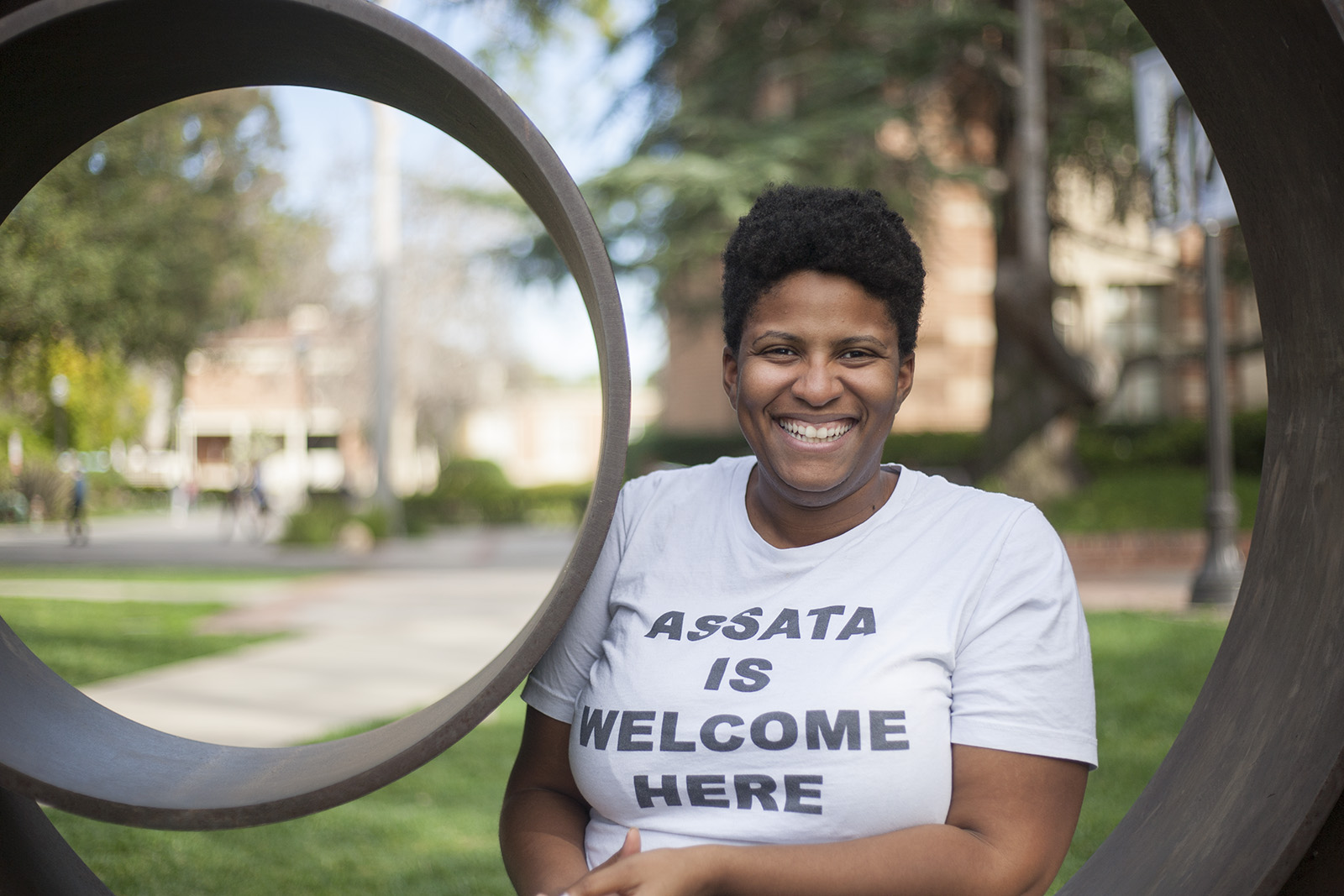Grad student hosts lecture about black feminist view on liberating love

Shondrea Thornton, a graduate student in gender studies, will discuss the concept of love through a black feminist lens. (Kristie-Valerie Hoang/Daily Bruin)
By Emi Nakahara
Feb. 14, 2017 12:07 a.m.
On Valentine’s Day, gender studies graduate student Shondrea Thornton will give a guest lecture on the ideals versus realities of love and relationships from a black feminist perspective. The lecture is part of a series held by gender studies graduate student Shawndeez Jadali. Thornton spoke with the Daily Bruin’s Emi Nakahara about the ideas and people involved in her analysis on love.
Daily Bruin: What can we expect for your lecture Wednesday?
Shondrea Thornton: What I’m really wanting to think through is challenging us to think of love as a framework for possibility and futurity, and love as a culture that must be cultivated.
Valentine’s Day is that time where we only talk about romantic love, usually heterosexual, usually very homogenous, so a middle-class person is in love with another middle-class person, a white person is in love with another white person … that’s kind of the conversation you hear.
But love can go beyond that. It can go beyond the very personal and your bubble. For example, what does it mean to love immigrants? What does it mean to love people of different faiths, races or genders? That’s the kind of love I want to focus on.
DB: What do feminist relationship practices entail?
ST: For me, feminist love practices is talking about the subversive nature of love: so loving the self, yes. Loving your partner, yes. But love is something that’s supposed to be liberatory – not just something (that is) supposed to be selfish. It’s really interrogating, “does my love free?” Do I feel free in this relationship? Love is something that frees people, not trap them in.
If I only feel safe in this love because it’s material, it looks good on paper or it’s convenient, that’s not really a feminist love I’m trying to cultivate. That’s why we’re going to be talking about how sexual attraction and love are really not related at all, and get confused a lot.
DB: What kind of perspective is the black feminist lens?
ST: When I’m using a black feminist lens, I’m using the lens of works produced by black women. So, Bell Hooks is a prominent black feminist scholar, and I’m a huge Beyoncé fan so we’ll probably work Beyoncé in there. The works by (these) black women really interrogate love. We’ll also talk about James Baldwin, using his iconic quote, “Love takes off the mask we fear we cannot live without and fear we cannot live within.” It’s a radical notion that love is liberatory.
DB: What examples from Beyoncé’s work will you incorporate into you talk?
ST: “Lemonade,” the visual album, is a good way to think about love that is tangible. It really takes you through the type of love that Bell Hooks talks about in her theories. We go through the cycle of healing of not just herself but her love practices … realizing (through each song) this is not a love that’s freeing – but it should be.
DB: What inspired you to pursue this specific topic, other than it being Valentine’s Day and Black History Month?
ST: It’s a conversation I would have liked to have in my undergrad experience. We need to talk about love as something that takes more work than falling in love.
We’re taught to just wait, thinking “When the right person come along, everything will fall into place.” But you have to choose it, commit to it, work on it and work on yourself daily.
It’s also inspired by the idea that there’s only certain questions we can ask and think about in an academic, intellectual way. Love isn’t really one of those questions. I wanted to push the envelope on that. It gives justice to love, where love becomes more powerful than just this random, cupid’s arrow emotion.
DB: What kind of impression do you hope to have on audience members?
ST: I want students to think about their loves and loving in a new light. I’m all about empowerment, so I want them to walk away thinking about the ways they experience love differently, because we’re taught that love is a very exclusive type of phenomenon: You either feel it or you don’t, you’re either single or in a relationship.


